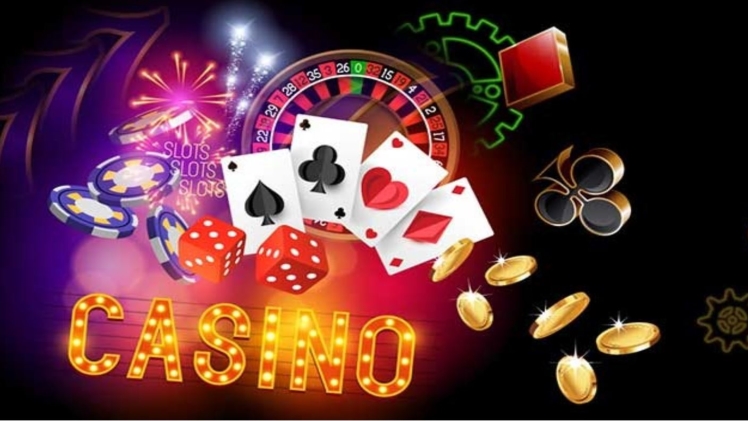Introduction
In the world of casinos and gambling, the allure of chance and the thrill of winning can be captivating. However, for some individuals, what begins as entertainment can quickly spiral into a gambling addiction, a serious and often devastating condition. Gambling addiction, also known as pathological situs slot gambling or compulsive gambling, can have far-reaching consequences on individuals’ lives, relationships, and well-being. In this article, we’ll delve into the risks and consequences of gambling addiction and explore ways to seek help and embark on the journey to recovery.
Understanding Gambling Addiction
Gambling addiction is characterized by an uncontrollable urge to gamble, despite negative consequences. Individuals with gambling addiction may find themselves constantly preoccupied with gambling, needing to gamble larger amounts of money to experience the same excitement, and feeling restless or irritable when attempting to cut down or stop gambling. This behavior can lead to a downward spiral of financial problems, strained relationships, and emotional distress.
Consequences of Gambling Addiction
The consequences of gambling addiction can be profound and impact various areas of an individual’s life:
- Financial Ruin: Excessive gambling can lead to substantial financial losses, including debt, bankruptcy, and loss of valuable assets.
- Emotional and Mental Health: Gambling addiction is often accompanied by anxiety, depression, and feelings of shame and guilt. The stress of hiding the addiction or dealing with mounting debts can exacerbate these emotional challenges.
- Relationship Strain: Gambling addiction can strain relationships with family members, friends, and partners. The deceit and secrecy associated with the addiction can erode trust and lead to conflict.
- Work and Academic Performance: The preoccupation with gambling can interfere with work or academic responsibilities, leading to poor performance, absenteeism, or even job loss.
- Legal Issues: Individuals with gambling addiction may resort to illegal activities to fund their gambling, leading to legal troubles and further compounding the negative consequences.
Seeking Help and Recovery
Recognizing the signs of gambling addiction and taking steps to seek help are crucial for individuals struggling with this condition. There are several pathways to recovery:
- Self-Reflection and Acceptance: Acknowledging the presence of a gambling problem is the first step. Individuals must accept that gambling has become detrimental to their well-being and take responsibility for seeking help.
- Supportive Relationships: Confiding in friends, family members, or support groups can provide a strong network of encouragement and understanding. Loved ones can offer emotional support and guidance on the journey to recovery.
- Therapy and Counseling: Professional therapists and counselors with experience in addiction can offer tailored guidance to address the underlying factors contributing to the addiction. Cognitive-behavioral therapy (CBT) is a common approach used to help individuals develop coping strategies and manage urges.
- Support Groups: Joining support groups, such as Gamblers Anonymous, provides individuals with a safe space to share their experiences, receive advice from others who have overcome similar challenges, and gain a sense of community.
- Financial Counseling: Seeking help from financial counselors can assist in managing debt, creating repayment plans, and rebuilding financial stability.
- Medication: In some cases, medication may be prescribed to address underlying mental health issues, such as depression or anxiety, that contribute to the addiction.
Preventing Relapse
Recovery from gambling addiction is a continuous journey, and preventing relapse is a crucial aspect of the process. Here are some strategies to help individuals maintain their recovery:
- Identify Triggers: Recognize situations, places, or emotions that trigger the urge to gamble, and develop strategies to manage those triggers.
- Create a Support System: Maintain connections with supportive individuals who understand the challenges of addiction and can provide encouragement during challenging times.
- Engage in Healthy Activities: Replace gambling with positive and fulfilling activities that bring joy, relaxation, and a sense of accomplishment.
- Practice Self-Care: Prioritize self-care by adopting healthy habits such as exercise, proper nutrition, and adequate sleep.
- Develop Coping Strategies: Learn healthy ways to cope with stress, anxiety, and negative emotions, such as mindfulness, meditation, or deep breathing exercises.
Conclusion
Gambling addiction is a serious condition that can have far-reaching consequences on individuals and their loved ones. Recognizing the signs of gambling addiction, seeking help, and embarking on the journey to recovery are essential steps towards regaining control of one’s life. With the right support, resources, and determination, individuals can overcome gambling addiction, rebuild their relationships, and create a brighter future free from the grasp of compulsive gambling. If you or someone you know is struggling with gambling addiction, don’t hesitate to seek help and start the path to recovery.

